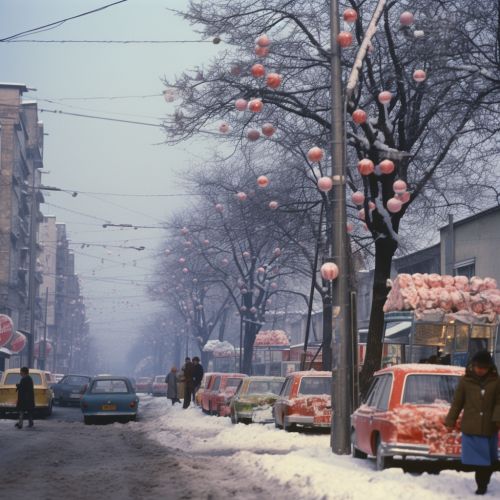Glasnost
Origins and Background
Glasnost, a term which translates to "openness" in English, was a policy that played a significant role in the restructuring of the Soviet Union's political and economic system during the 1980s. The policy was introduced by the Soviet Union's General Secretary, Mikhail Gorbachev, in 1985. The term Glasnost has been used in Russian political language since the 18th century, but it was Gorbachev who brought it to the forefront of Soviet and international political vocabulary.


Implementation of Glasnost
Gorbachev's implementation of Glasnost was a radical shift from the policies of his predecessors. It aimed to increase transparency and freedom of speech in the Soviet Union, which had been heavily censored and controlled by the government. This policy was part of Gorbachev's broader reform plan, known as Perestroika, which sought to restructure the Soviet Union's political and economic system.
Impact on Soviet Society
The impact of Glasnost on Soviet society was profound. For the first time in decades, the Soviet people were able to openly discuss and criticize the government and its policies. This led to a surge in political activism, as well as the emergence of independent media outlets. However, the policy also led to increased social unrest, as the public became more aware of the economic and social problems facing the Soviet Union.
Impact on International Relations
Internationally, Glasnost was seen as a positive step towards democracy and was met with approval from Western nations. The policy led to improved relations between the Soviet Union and the West, culminating in the end of the Cold War. However, it also led to increased tensions within the Warsaw Pact, as other member states were pressured to implement similar reforms.
Legacy of Glasnost
The legacy of Glasnost is complex. While it is credited with helping to end the Cold War and ushering in a new era of openness and transparency in Russia, it is also blamed for contributing to the collapse of the Soviet Union. Today, the term Glasnost is often used to refer to any policy or action that promotes transparency and openness in government.
